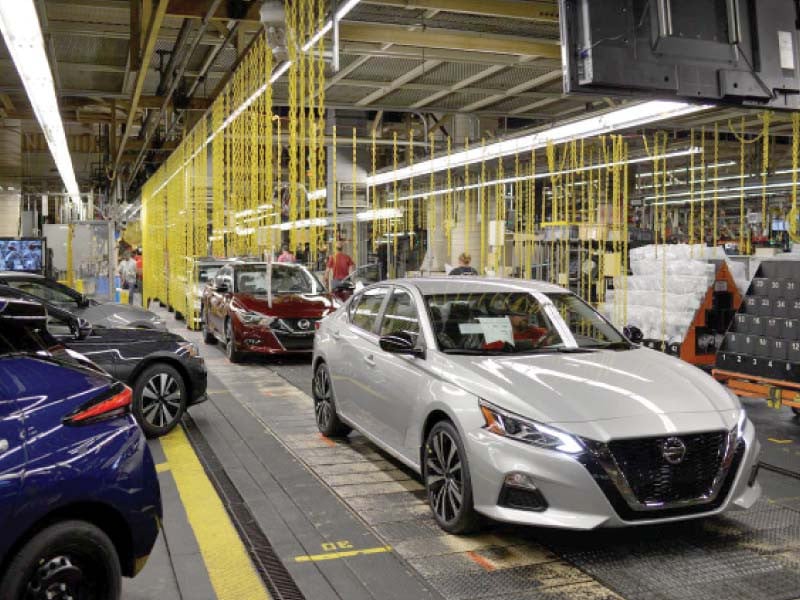
A Senate panel on Thursday linked reduction in duties for up to 850cc cars with drop in vehicles prices, as the government has proposed lowering taxes for two years to encourage the middle class to upgrade their living standards.
The Federal Board of Revenue (FBR) presented the reduced duties structure before the Senate Standing Committee on Finance. The FBR’s papers showed that the customs duties on import of completely knocked down locally produced parts is proposed to be cut from 46% to 30% and for non-local parts from 30% to 15%.
The reduction in duties for automotive and pharmaceutical sectors should be linked with reduction in prices of cars and medicines, recommended the standing committee. It has called the Engineering Development Board (EDB) for a briefing on the pricing structure and quality and safety of the assembled cars in the next meeting.
However, the relief will only be for two years or till June 2024, whichever is earlier, from the date of issuance of manufacturing certificate by the EDB.
The government is taking a Rs15-billion hit on revenues on account of reduction in duties and taxes on cars. The taxes constitute one-third to 42% of the total prices of the vehicles, depending upon the variant.
Read: Car sales record 247% growth
The government has also proposed to abolish 7% additional customs duties on CKD kits and also recommending withdrawing 7% additional custom duty and 15% regulatory duty on completely built units (CBU).
Senator Saleem Mandviwalla said that the most expensive cars are being made in Pakistan, “you are giving duty exemption but there should be a pricing system”.
“There is still difference of opinion over rationalising duties structure for vehicles of above 850cc categories,” FBR Customs Policy Member Syed Hamid Ali told the committee. The car assemblers have been playing with the destiny of the country during past 30 years and have never fulfilled their commitments about localisation of parts, said Senator Mohsin Aziz of the Pakistan Tehreek-e-Insaf (PTI).
The duty on Euro 5 quality fuel has also been reduced, officials of the FBR apprised the committee. The committee summoned the petroleum secretary for a briefing on the matter of Euro 5.
Senator Aziz argued that the oil refineries have been taking undue benefits but failed to upgrade refineries.
The National Tariff Commission briefed the committee about the reduction in duties and taxes various industries mainly textile, chemicals, pharmaceuticals and tourism.
The government is gradually reducing import tariffs on raw materials and intermediary goods to promote export-led growth, said National Tariff Commission chairwoman Dr Rubina Athar. The maximum reduction has been proposed for the lowest two customs duties slabs, she added.
A major change has been proposed for the textile sector, which has been given Rs12 billion relief in duties, followed by Rs11 billion for the chemical sectors. So far, more than 2,000 tariff lines have been reduced to zero. Tax duties on all raw materials have been significantly reduced, she further added. Textile exports are targeted to increase by $4-5 billion next year, Athar informed.
So far, more than 2,000 tariff lines have been reduced to zero. Tax duties on all raw materials have been significantly reduced, she further added. Textile exports are targeted to increase by $4 billion to $5 billion next year to $20 billion, she informed.
Read more: Senate panel opposes sales tax at retail stage
The duties on the point of sales (POS) machines, like card readers and multiple function schemes have been reduced from 5% to zero in the budget, said the FBR Customs Policy member.
A major relief has also been given to pharmaceutical sector on its 240 active pharma ingredients.
“If the pharmaceutical sector does not reduce prices of the medicines, then the government should withdraw the relief,” said Senator Talha Mehmood, chairman of the standing committee.
For the publishing industry, customs duties on papers have been reduced from 20% to 16% and additional customs duties from 7% to 4%, said Hamid Ali.
Senator Farooq H Naik showed his disappointment that all relief for tourism was given to hilly areas; he said that relief should also be given for coastal areas in Balochistan and Sindh. Replying to reservations of Naik, the FBR official said that all this relief was given on the recommendations of the provincial tourism authorities.
Published in The Express Tribune, June 18h, 2021.
Like Business on Facebook, follow @TribuneBiz on Twitter to stay informed and join in the conversation.


1729137363-0/Liam-Payne-fans-(1)1729137363-0-165x106.webp)





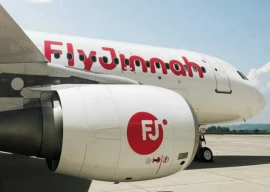
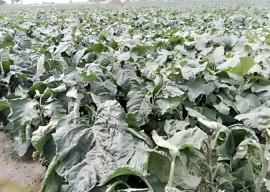
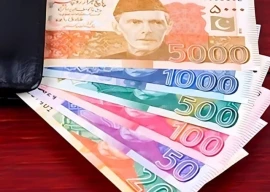
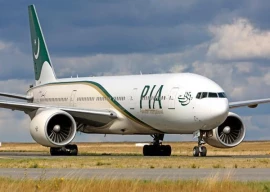
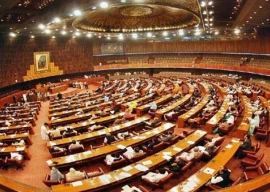
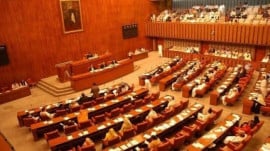
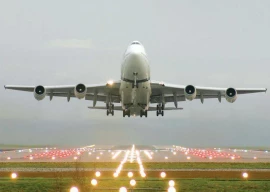






COMMENTS
Comments are moderated and generally will be posted if they are on-topic and not abusive.
For more information, please see our Comments FAQ